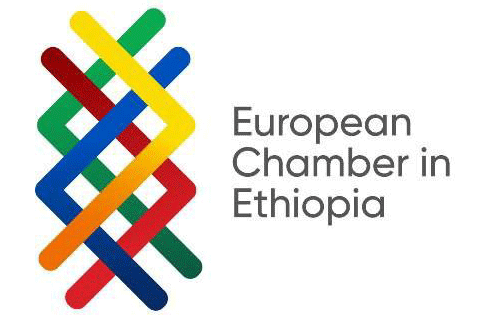
European Chamber in Ethiopia Welcomes Ethiopia’s FX Exchange Reforms
[Addis Ababa, August 9, 2024] – The European Chamber in Ethiopia (EuroCham) commends the Government of Ethiopia’s and the National Bank of Ethiopia’s (NBE) decision to introduce a market based exchange rate, eliminate the waiting list and priority ranking for foreign exchange (FX), lift import restrictions on numerous items and delegate more authority to commercial banks for FX management. EuroCham believes these bold reform measures will enhance transparency and predictability for businesses seeking FX access in the medium term as well as lead to an increased FX availability for the manufacturing and import-substitution sectors.
The reforms, seen as liberalizing and eliminating many of the regulatory restrictions that used to be in place, aim to significantly diminish the role of the parallel black market by attracting FX back into the formal market. The announced measures, therefore, have the potential to address long standing macroeconomic imbalances. The gap between formal and parallel markets has currently narrowed to a single digit. The current trend observed in the unification of the exchange rates would incentivize the commodity exporter as it allows to rectify the mismatch between the international commodity prices and the domestic prices as well as allow for exporting manufacturers to improve their liquidity position which had been eroded due to the overvaluation of the ETB, while most of the domestically purchased goods and services were already factoring in the black market rate. Attracting the FX back into the formal system would also stop the self-destruction of certain export sectors where exporters have been selling at a loss in order to sustain their import business where imported goods were sold at highly inflated margins to compensate for the sustained losses. Eurocham has observed that prices of agricultural commodities have seen unexplained price hikes over the past two weeks driven by profiteering brokers and middlemen. Unless this trend is countered, this will impact the effectiveness of the export incentives the directive had envisioned.EuroCham also observed price surges of goods in wholesale and retail and believes it will be important for the relevant authorities to address such behaviour, especially regarding traders and manufacturers holding stock and hoarding products. While inflation is to be expected from such reform, it will also be important that inflation is kept under control in order to protect the livelihoods of those on low and fixed incomes. While increased investment in the Productive Safety Net and the announced adjustment of the lowest salary brackets are intended to address the impact of inflation, they could exacerbate inflation if left unchecked.
For the reforms to be effective, a multistakeholder approach is required to ensure that FX inflows enter into the formal system through an attractive and transparent FX exchange system. While the new directive should offer the incentives for exporters and importers alike and for remittance from the diaspora to enter into the formal system, coordinated efforts between the Ministry of Revenue and Customs Commission will be required to stop the illicit flows, create a level playing field and take away the incentive of the unregulated trade that has been persisting for too long. Current observations indicate uncertainty in the trading environment with supply and demand for FX slowing down.
EuroCham also views the lifting of import restrictions on 38 items by the NBE as a positive development. However, the continued ban imposed on importing fuel powered vehicles remains a significant hurdle for the private sector, specifically for those investments operating in remote corners of the country without appropriate infrastructure for EVs. Similarly, while the removal of restrictions on Franco Valuta imports is anticipated for both businesses and individuals, bureaucratic challenges persist. Current customs restrictions on FV imports, even for essential spare parts and crucial inputs and raw materials for the manufacturing sector, are hindering the sector and contradict the announced reforms by NBE.
Ethiopia’s new foreign exchange regulations differentiate between inflows related to Foreign Direct Investment (FDI) and export proceeds. While FDI inflows can be fully retained in foreign currency, exporters must currently surrender 50% of their earnings at a freely negotiated exchange rate and can only retain the remaining 50% for a maximum of 30 days. While NBE has announced that both the retention rate and the retention period may be adjusted from time to time, EuroCham expresses concerns about the practicality of the mandatory surrender after 30 days, given the current lengthy global supply chains and the logistical challenges posed by the Red Sea crisis which hinder timely imports. This would necessitate extraordinary measures for businesses to align import schedules with export earnings in order to access their own export retention proceeds. Eurocham reiterates its viewpoint that FX retention rates for the export manufacturing sector (those who add value and require inputs) shall be higher compared to the FX retention rates of exporter traders
The regulations maintain restrictions on advance payments for imports, limiting them to $5,000. While the possibility of larger advance payments has been introduced and could be used as an alternative solution to overcome the challenges posed by the mandatory surrender of the retained export earnings after 30 days, it requires the submission of a foreign bank guarantee, thereby increasing complexity and costs for importers.
In addition to retaining half of their export earnings, exporters can now negotiate to repurchase the remaining portion from their banks at the prevailing selling rate. This flexibility is expected to alleviate foreign exchange shortages, potentially reduce costs for import-substitution manufacturers, and enable the utilization of their manufacturing capacity, which has been idle due to persistent FX shortages over the past years. The ability of exporters to freely use their own foreign exchange for purchasing goods and services within the same legal entity also marks a groundbreaking shift in Ethiopia’s economic landscape.
The directive now enables credit card payments and e-commerce for export activities, streamlining common international practices in trade processes. Additionally, expat workers can now transfer their net bonuses and pensions abroad, addressing a long-standing concern. Previously, only their monthly net salary could be remitted overseas.
Domestic companies involved in export, import substitution, road construction, or agriculture machinery can now obtain supplier credit in foreign currency. Other positive developments include the removal of interest rate ceilings on foreign loans, a long-standing demand from EuroCham as the former interest rate cap of 5% was no longer able to accommodate the growing global interest rates.
The new regulations allow big scale mining, public-private partnerships (PPPs), and strategic foreign direct investments (FDIs) to establish offshore accounts. It also introduces favorable conditions for Special Economic Zones (SEZs) and Industrial Parks (IPs). Companies operating within these zones can now invoice and settle payments in foreign currency amongst each other, enhancing operational efficiency and flexibility which is believed to promote value chain additions and cut back on import requirements.
Additionally, the authorization of forex exchange bureaus is a crucial step towards addressing the scarcity of foreign currency notes in the formal economy which will benefit outbound travelers. Some of the additional measures introduced to address the acute shortage of foreign currency that has plagued the banking system include requiring foreign visitors to pay for hotel and airline services in foreign currency, allowing employees of foreign companies and international organizations to open foreign exchange accounts with fewer restrictions, and promoting the use of foreign currency debit and credit cards within Ethiopia. Moreover, individuals can now purchase up to $5,000 or 10% of their account balance in foreign currency for travel abroad, a significant improvement over previous restrictions. These measures, together with a more unified exchange rate are expected to stimulate the inflow of FX into the formal market, including remittances originating from the diaspora community, and reduce the demand for black market exchange.
The new exchange regulations do not explicitly enforce the use of the Ethiopian Shipping and Logistics Service (ESL), allowing for potential future competition in the sector. While the Ministry of Transport and Logistics currently still retains control over the mandatory use of ESL, the directive leaves room for the eventual elimination of its monopoly.
On a different note, the regulation presents challenges for the floriculture sector. The persistence of minimum export prices for flowers, coupled with uncertainty over whether freight charges must be remitted on top of the FOB value, is creating significant difficulties for the industry. While the government retained the minimum export prices for flowers with the aim to control the mandatory remittance, these measures risk undermining Ethiopia’s competitiveness in the global flower market as Ethiopia is subject to global pricing. EuroCham is advocating for the complete removal of minimum export prices altogether so that exporters can compete freely in the global market.
The regulation allows foreign investors to purchase FX from commercial banks at the prevailing exchange rate to transfer shareholder earnings for future dividends. On the other hand, the new regulation establishes a tiered approach to backlogged dividend repatriations. These are dividend repatriations approved by NBE but not yet paid by banks before July 28, 2024, awaiting further clarification. As the unforeseen devaluation of the ETB is causing significant concerns among investors, wiping out about half of the accumulated backlogged shareholder earnings, it could lead to further erosion of shareholder value and confidence. EuroCham will continue to advocate for a more FDI friendly solution for the backlogged dividends.
Overall, the new directive consolidates previous regulations into a single document, providing greater clarity and transparency for businesses and prospective foreign investors leading to an improved business climate. EuroCham believes that the announced historical reforms could bring about a landslide change into the macro-economic landscape and address longstanding discrepancies allowing the free-floating exchange rate to address structural distortions. While EuroCham welcomes the FX regulatory reforms, the real impact is to be seen in the coming months once the market forces have settled and the FX reserves in the formal system have increased. The announced reforms will however only succeed if the relevant government stakeholders such as customs, tax authorities, trade regulators, security forces and NBE jointly crack down on illicit actors whereby the rule of law and peace and security shall prevail and anti-inflation measures are rapidly implemented.
latest News
EuroCham Launches a New Office and FDI Incubation Center
February 1, 2026
EU and EuroCham Sign Grant to Boost Ethiopia’s FDI competitiveness
November 22, 2025
EuroCham Networking Event Discusses New Income Tax Law
October 22, 2025
EuroCham Urges Reconsideration of EUDR Timeline
September 29, 2025
EuroCham Conducted Technical Discussions with Outgoing NBE Governor
September 17, 2025






